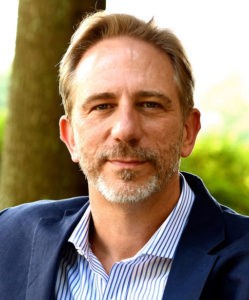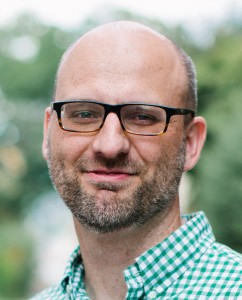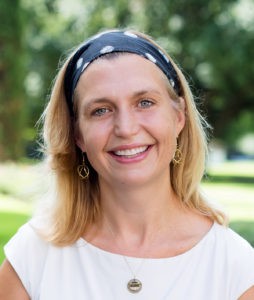When David Gushee wrote his article “The Deconstruction of American Evangelicalism” for Baptist News Global, he kicked off what would become the focus of the next stage in the debate between conservative evangelical complementarians and their egalitarian counterparts.
That debate took the form of a Thanksgiving weekend Twitter war between representatives of the Council on Biblical Manhood and Womanhood and three of the most prominent Christian authors currently pushing back against the kind of complementarian theology espoused by CBMW.
The disagreement appears to be not whether the Bible communicates objective truth but how the Bible’s revealed truth is interpreted or gets clouded by culture.

David Gushee
In his BNG piece, Gushee argued that the “intellectual underpinnings of evangelicalism are being deconstructed” by Christian scholars such as Kristin Kobes Du Mez, Beth Allison Barr, Jemar Tisby, Andrew Whitehead, Samuel Perry, and Jacob Alan Cook. According to Gushee: “‘Evangelical Christianity’ turns out to have been at a theological level little more than a rebranding of fundamentalism by a certain group of mid-20th century white men.”
Of course, this certain group of mid-20th century white men (and their heirs) soon would begin voicing their objections to Gushee’s piece.
The ‘Gushee-esque Deconstruction Project’ vs. ‘the Queen’
In response to Gushee, Jonathan Leeman wrote an article for the conservative Calvinist website 9 Marks arguing that:
- Evangelical doctrine is equated with the sound doctrine described in the Bible.
- The authors Gushee mentioned are coming from historical and sociological perspectives rather than a biblical studies perspective.
- Theology is being “dethroned as the queen of the sciences.”
- “The deconstruction project” is simply a postmodern criticism of hierarchy.

Jonathan Leeman
Leeman is a graduate of Southern Baptist Theological Seminary, works as an editor for 9 Marks and is an elder at Cheverly Baptist Church in Maryland. Gushee also earned a master of divinity degree from Southern Seminary, but in a different era of the school’s ideology. Gushee has left the evangelicalism of his youth and young adult years; Leeman represents those defending the modern understanding of that very evangelicalism from a Calvinistic and complementarian perspective.
Complementarianism is the belief that God created men and women distinctly for different roles in church and home and that men always should exercise authority over women, even their wives, and that only men are biblically qualified to serve as pastors.
In response to Gushee’s article, Leeman proposes that pastors should:
- Ask if the hurt described by these authors is legitimate.
- See abusive power dynamics in light of the Calvinistic doctrine of total depravity.
- Admit their own temptations to power.
- Realize that connecting theology and power isn’t always bad.
- Discourage people from trusting historians too much.
- Reject any theology that emphasizes personal story more than objective biblical interpretation.
- Dismiss the “Gushee-esque ‘post-evangelical’ — a.k.a. liberal” approach of what he calls essentializing race.
Who’s afraid of the big bad wolves?
Leeman also implies that these authors are “wolves,” claiming that they “take a wicked delight in posturing as protectors of the hurt,” … “have managed to frame the conversation for the group,” … and “exploit these experiences to lead people into false teaching and church division.”

Kristin Kobes Du Mez
Du Mez took exception with many things Leeman wrote, saying that what Leeman wrote “not even remotely” describes what the scholars he criticized are doing. She tweeted: “You make so many unsubstantiated & incorrect assumptions throughout your piece & in this thread about me, my scholarship, & the discipline of history.”
Of all the issues she took with Leeman’s article and subsequent tweets, she especially confronted his “wolves” accusation. “If you must warn of wolves, be precise & get your facts straight. If you are unable or unwilling to do so, leave off the wolf talk,” she tweeted. She also called it “irresponsible at best,” and said it was “intellectually lazy, theologically insupportable, and, particularly in our current moment, dangerous.”
During the argument on Twitter, Leeman accused Du Mez, Barr and Tisby of approving Gushee’s post-evangelical theology because they had all thanked Gushee for his Baptist News Global article.

Beth Allison Barr
Barr replied: “I thank a lot of people I don’t agree with or identify with. It is called human decency. I also thank people who make good insights even if I wouldn’t agree with them theologically. Just because we disagree theologically doesn’t mean we dismiss good scholarship.”
After Leeman said to Du Mez, “Your entire book says that” it’s “only about gender and race,” Du Mez had to conclude: “I think I need to bow out at this point. If you’re not able to have a more nuanced conversation than that, to see the interplay between theology and culture that I describe and critique, I think we’re going to have to agree to disagree. On all of it.”
Who’s theology has been formed by culture?
While the Christian scholars Gushee cited in his Baptist News Global piece focus on different specialties, they all seem to agree that much of what conservative evangelicals assume to be clearly biblical is actually formed by a subculture of power.
Conservative evangelicals, however, believe their theologies are based on the clear teachings of Scripture.
The Council on Biblical Manhood and Womanhood released an article last week claiming the authors Gushee mentioned use broad language categories about past abuses in order to gain moral leverage for the oppressed in such a way that attacks “our understanding of marriage, sexuality, hell, inerrancy, and the gospel itself.” According to the CBMW, to accept what these authors say on one topic becomes a “universal acid” that erodes the objective, biblical revelation that conservative evangelicals believe on all the issues.

Colin Smothers
Colin Smothers, executive director of the CBMW, tweeted that it “takes a certain kind of chutzpah for egals to call complementarians the culturally assimilated ones. They may think their position is biblically warranted, but no amount of historical revision will change the fact that it’s new with similar movements in the wider secular culture.”
So despite their differences “on all of it,” what complementarians and egalitarians seem to agree on is that the other side is being theologically formed by culture rather than by orthodoxy or the Bible.
What are we deconstructing?
In their back and forth on Twitter, Du Mez pushed back against Leeman’s assumption that they are deconstructing core theological tenets of Christianity, tweeting that “Gushee is clear that he is talking about deconstruction in our case in terms of ‘the intellectual underpinnings,’ specifically definitions & self-perceptions, our examination of ‘patterns of behavior’ that ‘have little to do w/ the purported core theological beliefs of (evangelicalism).’”
Jemar Tisby tweeted, “I’m not engaged in any ‘deconstruction’ project. Read The Color of Compromise and the primary sources I cite. I’m showing the historical record. But this isn’t about the quality of scholarship so much as discrediting those who don’t defend the status quo.”
Samuel Perry added, “Anything that challenges conservative white evangelical interpretations of the Bible is now called ‘deconstruction.’ Like anything. Even if you see your project as more consistent with orthodox understandings of Christianity. It’s apparently ‘deconstruction.’”
Barr agreed, “I’m not deconstructing faith … I’ve learned to separate culture from what I believe about Jesus.”
The authors Gushee mentioned in his Baptist News Global piece all seem to agree that they are criticizing conservative evangelicalism as a culturally formed modern power dynamic while holding onto orthodox Christian theology.
Michael Bird, an Australian biblical scholar and priest, noted, “This is the problem in American Complementarianism, the text, the interpretation, and the practice got fused together under the aegis of ‘divine authority.’ Yet, if you question the interpretation or the practice, you get accused of attacking the Bible.”
So while egalitarians may disagree with complementarians “on all of it,” both sides seem to assume that there is a core of orthodox Christian theology and biblical revelation we should believe and promote and refrain from deconstructing. The difference seems to be what that orthodoxy and biblical revelation entails.
Do you believe homosexuality is sinful?
Of course, one can always count on a conservative evangelical to insert the LGBTQ boogeyman into the conversation. Denny Burk, a Southern Seminary professor and president of the CBMW, asked Du Mez, “Do you believe homosexuality is sinful?”
“While Du Mez originally had hoped to enjoy a drama-free Thanksgiving weekend, the Theobros had other plans for her.”
While Du Mez originally had hoped to enjoy a drama-free Thanksgiving weekend, the Theobros had other plans for her. So she decided “in the face of repeatedly being labeled a wolf or wolf-adjacent, false teacher, and destroyer of the gospel” to push back.
She posted a response, saying Burk’s pivot to his fears about LGBTQ affirmation was “to the surprise of exactly no one.” She spoke about her expectations that a scholar’s work should be assessed on its own merits “through rigorous intellectual engagement,” rather than “hiding out in our own echo chambers and refusing to read or take to heart the work of anyone who does not affirm every jot or tittle of one’s ‘Christian worldview.’”
Du Mez went on to explain that while she “grew up holding the ‘traditional’ view,” her denomination “is actively reexamining this issue in light of tradition, interpretation, history & science,” and that she is “participating, but as a historian, not a theologian.”
She concluded: “Burk points to 1 Cor 15:1-5 as the heart of the gospel. Agreed! So much so that I refuse to use views on gender, sexuality, atonement theory, baptism, spiritual gifts and the like as a way to preemptively exclude believers from fellowship in the Body of Christ. We can spend our lives asking what right belief & obedient discipleship looks like in all these areas, & we should. But I’m going to do so in conversation & communion with my LGBTQ sisters & brothers in Christ.”
How does orthodoxy relate to culture?
In his article for 9 Marks, Leeman said, “I would discourage Christians from giving historians or sociologists the same kind of trust they give to their pastors and their pastors’ teaching of the Bible.”
“I would discourage Christians from giving historians or sociologists the same kind of trust they give to their pastors and their pastors’ teaching of the Bible.”
Regarding Tisby’s book The Color of Compromise, Leeman says, “Readers shouldn’t naively think he’s offering something objective.” He goes on to say that Critical Race Theory is “Moses on racialized hyperdrive,” and that it is “one of the premier Phariseeisms of today.”
Instead, Leeman says, “Scripture calls congregations to listen to their pastors who teach them God’s Word, not the scholars who, to be sure, sometimes offer useful supplementary work.”
But Leeman’s words here reveal that he lacks the awareness of how the theology pastors teach has developed throughout history. And that awareness is precisely what historians such as Du Mez, Barr and Tisby provide us.
Barr reflected this awareness when she tweeted, “I know the difference btw my U.S. Baptist heritage & the beliefs I share w/medieval Christians. I can recognize how my modern Western context informs my faith.”
Church historian Roger Olson says in The Story of Christian Theology that “no doctrine of Christianity ever developed out of thin air. Every belief — whether considered ‘orthodox’ (theologically correct) or ‘heretical’ (theologically incorrect) arose because of a challenge.”
Pastors today have access to an unprecedented amount of insight to the cultural and sociological lenses that theologians throughout the centuries have interpreted the Bible through. But we need historians to help pastors recognize the cultural and sociological lenses through which theologians have interpreted the Bible across time.
How does the Bible relate to culture?
While these historians may be able to help us learn how orthodoxy grew within culturally and philosophically situated struggles, the question in today’s debates ultimately goes back to the nature of the Bible. Was the Bible written as the objective, revealed word of God dictated to the authors to communicate perspicuous eternal truth to us?
Leeman said, “The final question always has to be: What does the Bible actually say.”
While Barr disagrees with Leeman about what the Bible says, she seems to share some degree Leeman’s view of what the Bible is, tweeting: “I believe in the Bible every bit as much as you. I say you are wrong because of my belief in the Bible.”
“I believe in the Bible every bit as much as you. I say you are wrong because of my belief in the Bible.”
According to Leeman, the Bible teaches complementarianism. But according to Barr, the Bible teaches an equal opportunity for leadership for both women and men.
Both of them appear to believe the Bible communicates objective truth, while the problem lies in the interpretation of the Bible’s revealed truth being clouded by culture.
Jill Hicks-Keeton, professor of religious studies at the University of Oklahoma, criticized Barr on this point, saying while Barr correctly critiques complementarianism as a concept developed in culture, “when it comes to the sacred anchor of Barr’s evangelical tradition, the Bible, Barr pulls her punches. The Bible, particularly Paul’s writings within it, manages to escape critical analysis. Christianity ‘rightly’ practiced and the Bible ‘rightly’ read are both, for Barr, anti-patriarchal.” And while Barr disagreed with Keeton’s conclusion about the Bible, she also believed it was a good example of a fair critique, in contrast to the critiques she gets from conservative evangelical complementarian men.
What the Bible says about itself
The Bible is a collection of books written across many centuries as a way of framing the past in order to interpret the present and consider the future. Central to the Hebrew Bible is the wound of exile. The death of Adam and Eve is told as the exile of the rulers from the land in which God dwelt. That language of king, land and temple in Genesis 1-3 reveals the wonders Israel longed for throughout their story.
Scholars believe the historical books of 1 Samuel through 2 Kings were written near or during the Babylonian exile as a way of asking how Israel ended up in exile. But the same history is told in Chronicles centuries later after their return to the land in a much more positive light as a way of asking whether God was still with them.
Jonah tells the story of God redeeming Assyria, while Nahum tells the story of God hating and destroying Assyria. In How the Bible Actually Works, Peter Enns says these discrepancies are because “they were written at different times under different circumstances for different purposes.”
When the New Testament claims that “Jesus is Lord,” it isn’t introducing a totally new concept that no one had heard of before. It is co-opting the Roman declaration “Caesar is lord” for Jesus. But Jesus can’t simply be inserted for Caesar because then we would be importing an entirely pre-existing socio-political structure designed by Rome into our theology of Jesus. So Jesus followers have to ask: In what ways is Jesus like Caesar? In what ways is Jesus not like Caesar?
In both the Hebrew Bible and the New Testament, what may appear to be objective, clear truth is actually situated in diverse cultural and sociological questions.
While I agree with Du Mez, Barr and Tisby about the culturally situated nature of conservative evangelicalism, my desire is that Christians would follow their insights and go even further toward Gushee’s post-evangelical vision.
“My desire is that Christians would follow their insights and go even further toward Gushee’s post-evangelical vision.”
To do this, we would have to reconsider widely held assumptions about orthodoxy and the Bible itself. Even if we assume God was revealing truth in the Bible, we’d have to admit that God used ideas and stories that already existed and then incorporated and evolved them into a Jewish/Christian story. That’s an entirely different model of the Bible than the assumption that if we go back far enough into orthodoxy or into the Bible that we’ll find an objective, clear standard perfectly dictated by God.
The current stage of the complementarian vs. egalitarian debate is at a standstill over where interpretation begins and how culture impacts orthodoxy. Major influencers on both sides seem to agree that the other side is forming their beliefs from culture while their side is forming their beliefs from an objective standard.
But what if interpretation and cultural influence go all the way back through orthodoxy and even to the writing of the Bible itself? What if the Bible itself is a culturally informed communal story of critiquing the hierarchies of Egyptian, Assyrian, Babylonian and Roman empirical power from a diverse community of the oppressed based on their social location in relation to their exile? What if the Bible is a contextualized perception of an infinite reality that simply can’t be perfectly communicated and contained in words? And how might the Bible’s modeling this progressive liberation into mystery inform our opening up from hierarchies today?
Rick Pidcock is a freelance writer based in South Carolina. He is a former Clemons Fellow with BNG and recently completed a master of arts degree in worship from Northern Seminary. He is a stay-at-home father of five children and produces music under the artist name Provoke Wonder. Follow his blog at www.rickpidcock.com
Related articles:
Jesus and deconstruction | Opinion by Terry Austin
Deconstruction is not a disease, and trying harder is not the cure | Opinion by Amy Hayes
The deconstruction of American evangelicalism | Opinion by David Gushee
Has conservative evangelicalism reached a dangerous moment of its own making? | Opinion by Susan Shaw


